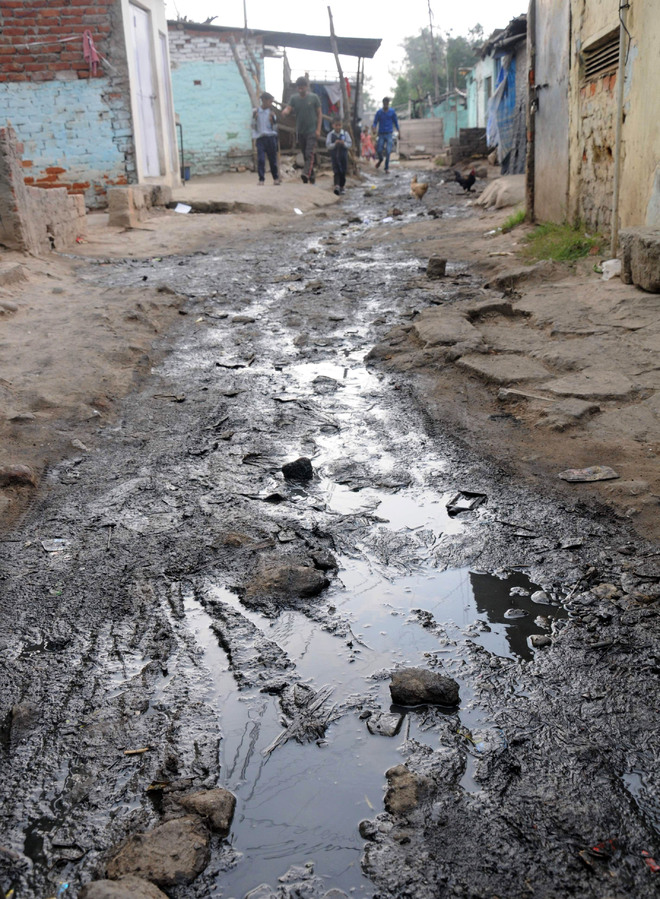Tribune News Service
Chandigarh, May 13
Amid the onset of weather conditions being conducive to mosquito breeding, stagnant water in many areas of the city’s periphery has been exposing residents to the risk of malaria. A visit to Colony No. 4, Ram Darbar and parts of Halo Majra village today revealed that the residents are being exposed to filthy stagnant water in their neighbourhood.
The unexpected rainfall today has brought down the temperature, exposing the patients further to the risk of exposure to parasitic malaria virus. While no case of malaria has been reported so far, many residents and the officials have failed to take note of the waterlogging in these areas.
Asked whether they have reported about the waterlogging to any officials or rang up at the helpline of the Health Department, the residents in Colony No. 4 said ,“ We are not aware if a helpline exists for the problem.”
Last week, the UT Administration authorised the local unit of the National Vectre Borne Disease Control Programme (NVBDCP) to impose penalties upto Rs 500 on the residents who are found ignoring water stored in coolers or flower pots.
Last year, 114 cases of malaria were reported in the city. The acitivities relating to awareness of malaria has not yet started in the city.
Unlock Exclusive Insights with The Tribune Premium
Take your experience further with Premium access.
Thought-provoking Opinions, Expert Analysis, In-depth Insights and other Member Only Benefits
Already a Member? Sign In Now










